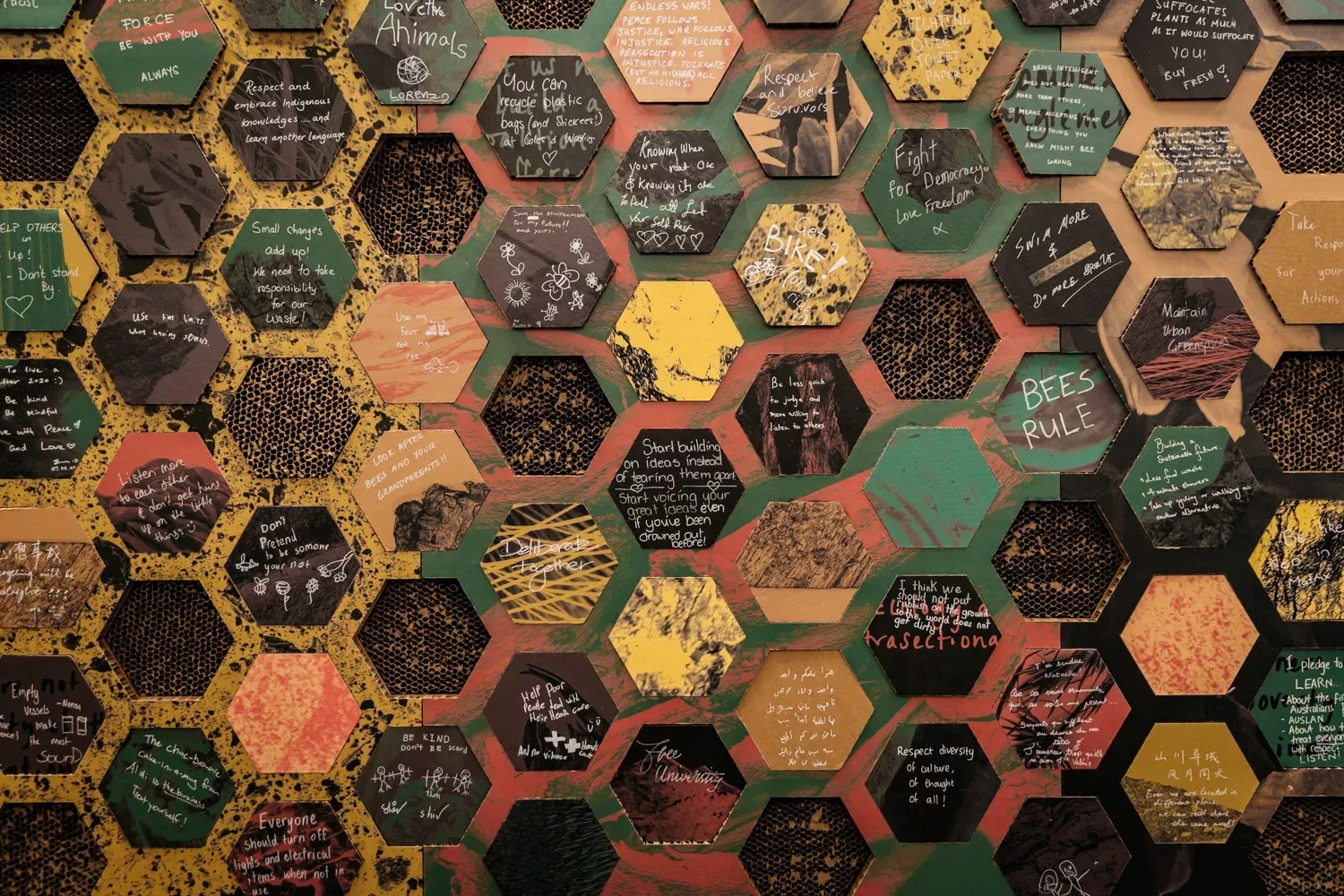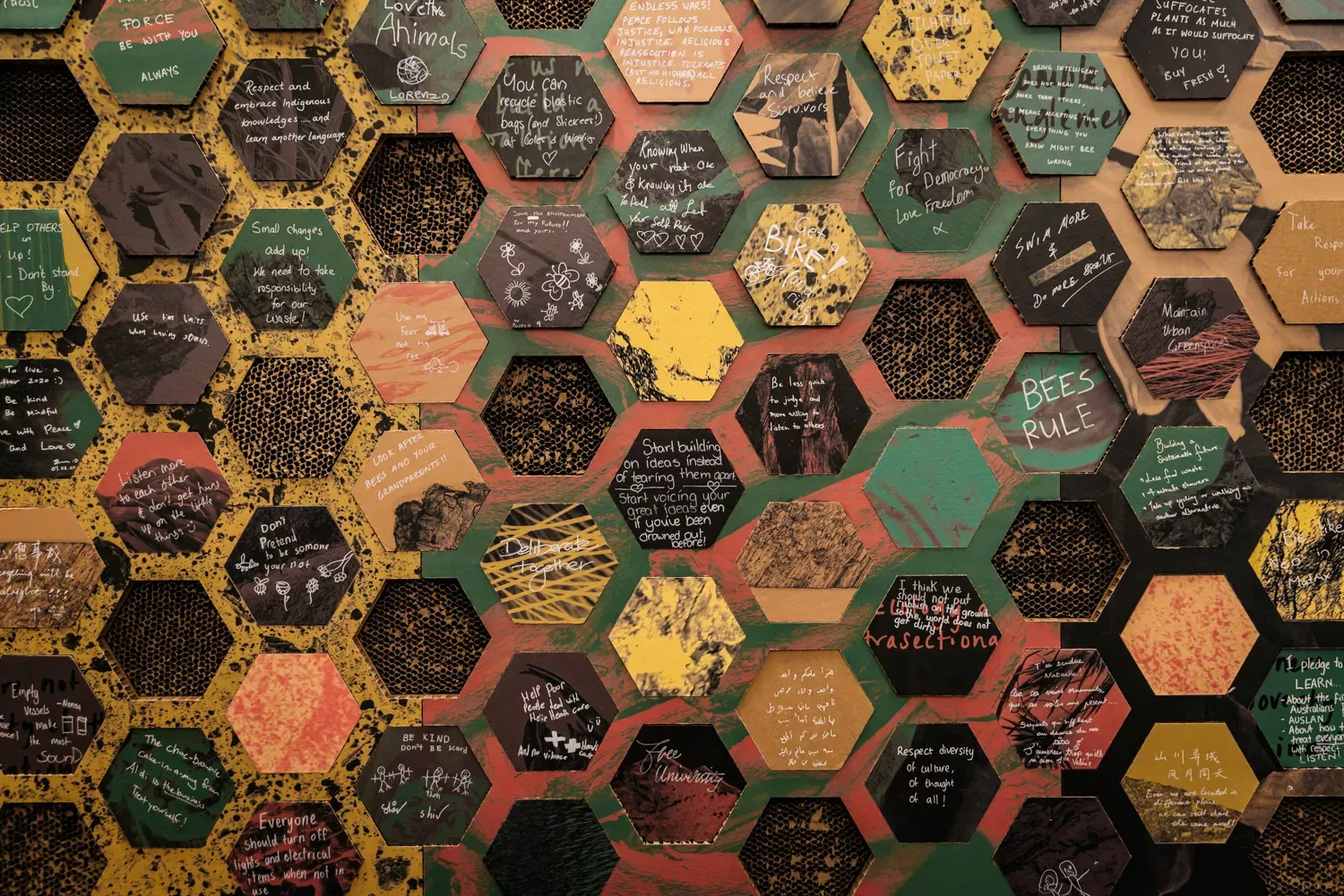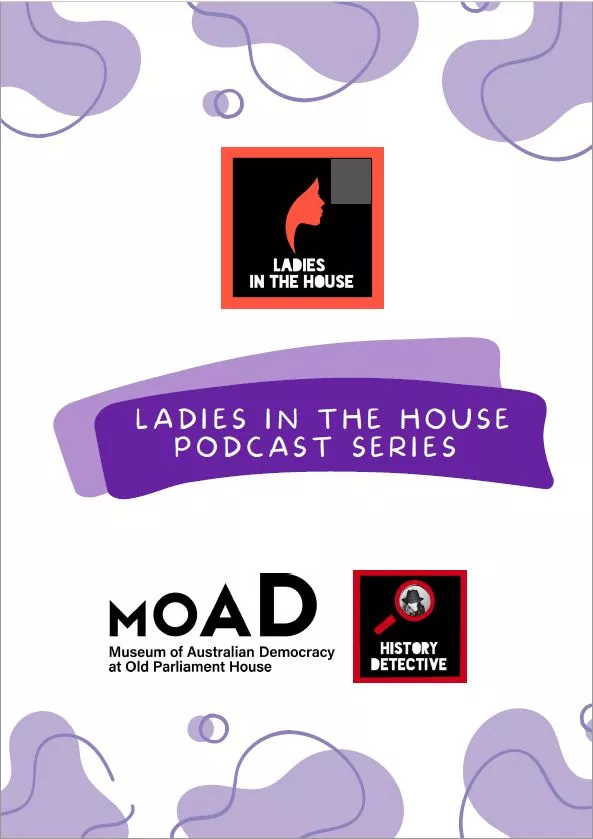Ladies in the House: Episode One: Hazel Craig
Intro (music)
Hi, this is Kelly Chase and you are listening to a Museum of Australian Democracy and History Detective Collaboration: Ladies in the House. In this 3-part series we are going to celebrate the lives of three incredible women who worked in Old Parliament House- the building that now houses the Museum of Australian Democracy- and we will explore how these significant women contributed to Australian democracy.
In this episode I would like to introduce you to Hazel Craig who served as a secretary for five different Prime Ministers and worked in the Old Parliament House building for more than 40 years! Those Prime Ministers were, Joseph Lyons, Robert Menzies, Arthur Fadden, John Curtin and Ben Chifley.
I know that most people can type these days, but in 1935 when Hazel was in her 20s and applying for a job as a public servant- that is someone who works for the government- she had to do an exam to prove she was good at typing. Of course, Hazel passed, and it was printed in the newspaper that she was appointed to work in the Prime Minister’s office in Canberra. Hazel was one of only a few women who were working in Parliament House in 1935. Many of the ministers in parliament had private secretaries, but they were always men, so to have a woman in this job was very unusual. The duties of a private secretary were to look up references for speeches, type and prepare the bills and notices that the ministers might need in parliament and take shorthand notes. Shorthand is a kind of special abbreviated written language secretaries used to use; it is not very common today. To be a private secretary, you had to be very competent.
One thing that is abundantly clear when reading about Hazel is that she was excellent at her job. Efficient, hard-working, dedicated and discreet. It did not matter what political party that the Prime Minister in power belonged to, she faithfully worked for the Prime Minister in office so that Australian democracy could run smoothly. “When you were appointed to the public service you took an oath of allegiance and a secrecy oath and you were apolitical. You took the oath that you would serve whatever government was in power at that stage, faithfully.” She was private secretary for three different the Prime Ministers who were in power during the Second World War and I can only imagine that working in Parliament House during a world war would have been a hectic and stressful experience.
For 25 years Hazel worked as private secretary for Australia’s longest serving Prime Minister Sir Robert Menzies and this opened up opportunities for both travel and incredible experiences. Hazel got to attend the of Queen Elizabeth the second. A coronation is the ceremony where a queen or king is crowned.
Speaking of the Queen, when the Queen visited Australia in 1954, Hazel was one of only two women to receive a medal from the Queen. She was awarded an MBE which stands for ‘Member of the Most Excellent Order of the British Empire’. Then in 1960 she was upgraded to an OBE, the O stands for Officer and 5 years later she was awarded a CBE. Which, of course, stands for ‘Commander of the Most Excellent Order of the British Empire’. A most excellent adventure indeed! As a part of her job she attended functions at Windsor Castle in England – that is the royal residence of the Queen- and the White House in America, where the American President of the day lives.
For 42 years Hazel worked tirelessly as a public servant at Old Parliament House. An article about her retirement published in the Australian Woman’s Weekly described her as, “an oasis of calm in the daily panic, [she] would lend you her dictionary, fix an interview, tell you whom to see about some strange query. But she would never tell any secrets.” At this retirement party she was gifted with an engraved silver tray from the ex-Prime Minister Sir Robert Menzies and his wife Dame Pattie Menzies, it simply said, ''A splendid secretary and faithful friend.''
Call to action (music)
An unsung hero is someone who perhaps is not praised or appreciated as much as they deserve to be, and Hazel Craig, who worked tirelessly to support five of our Australian Prime Ministers, is a name only remembered by a few and is definitely an unsung hero. What I would like you to think about is, who are the unsung heroes in your school or local community? Who are people the working behind the scenes to help and support others but do not get all of the fanfare? How might you celebrate or acknowledge their work? Maybe today would be the perfect day to say thank you to an unsung hero.
This is Kelly Chase, on the case.







